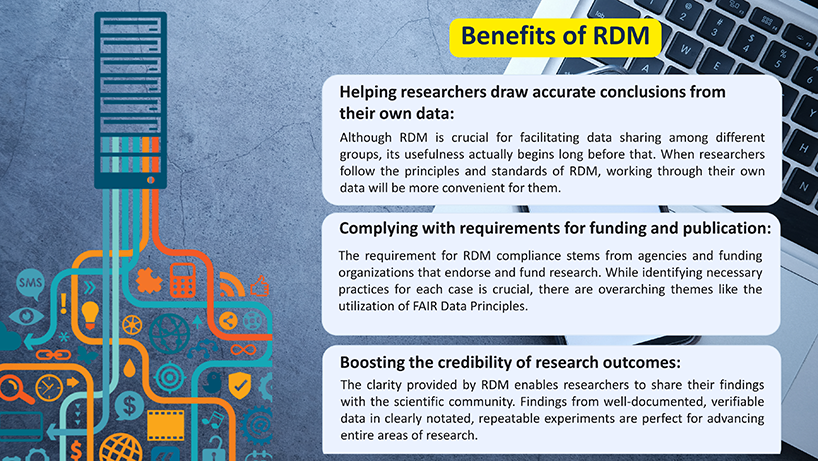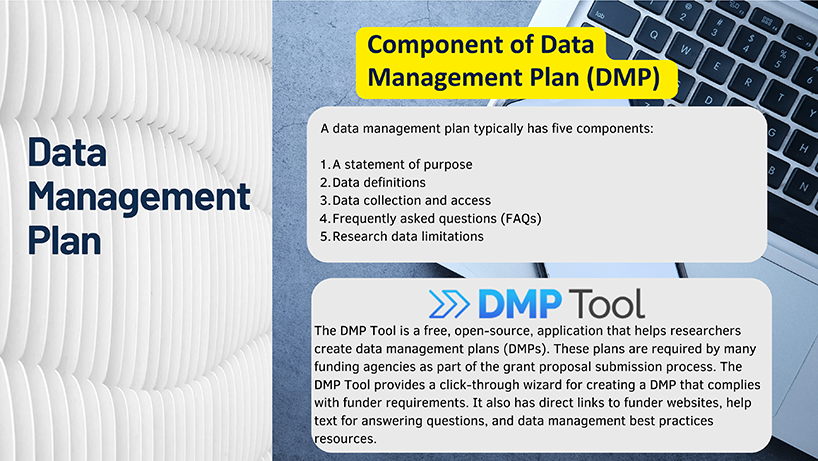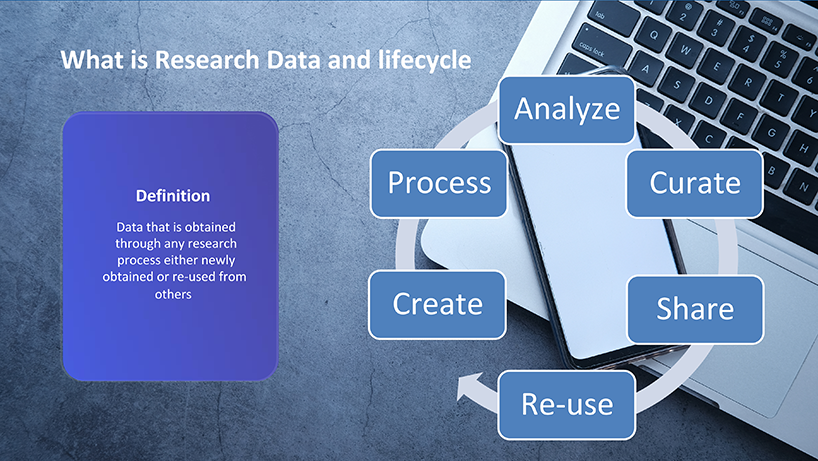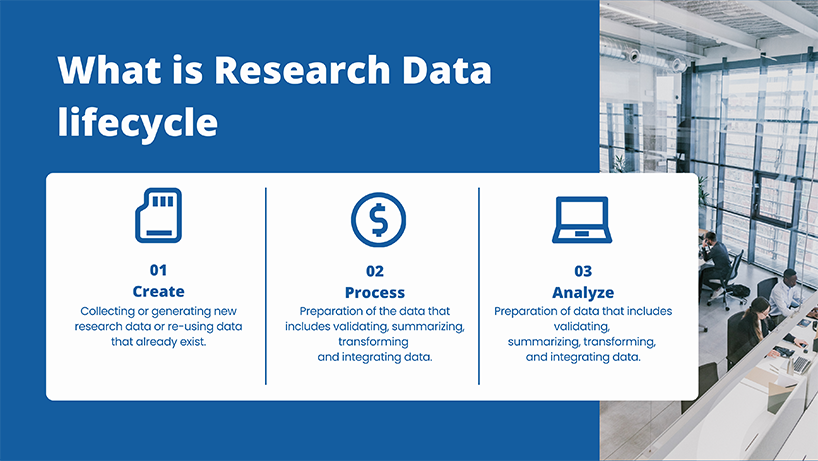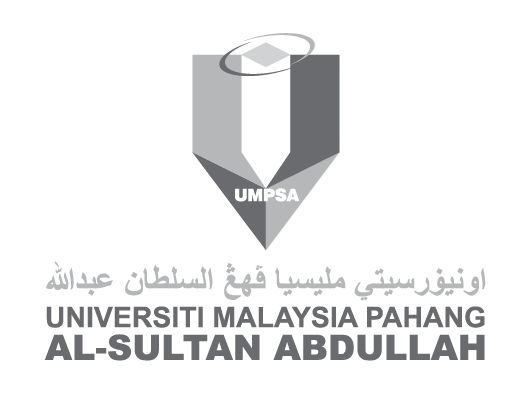Research Data is the "what" (the actual data), while RDM is the "how" (the process of managing the data).
Effective RDM ensures that research data is findable, accessible, interoperable, and reusable (FAIR principles).
RESEARCH DATA
Research data, unlike other types of information, is collected, observed, or created, for purposes of analysis to produce original research results. - (Source: http://www.docs.is.ed.ac.uk/docs/data-library/EUDL_RDM_Handbook.pdf)
Research data are defined as “factual records (numerical scores, textual records, images and sounds) used as primary sources for scientific research, and that are commonly accepted in the scientific community as necessary to validate research findings. A research data set constitutes a systematic, partial representation of the subject being investigated” (Ganshorn & Abel, 2025) - (Source: https://www.sciencedirect.com/science/article/pii/B9780323956895000055)
Research data management (RDM) refers to the activity of working with research data throughout the research process, from data collection, to data storage and backup, through to data sharing at the end of a research project. (Source: https://mantra.ed.ac.uk/researchdataincontext/)
Research data management (RDM) refers to practices that support access to and use of data during the active stage of a project, as well as the steps necessary to ensure continued access to and use/reuse of data after the project’s completion. These activities encompass data management planning, organizing data, improving procedures for analyzing data, adequately storing and backing up data during the project, preparing data for preservation and sharing after a project, and searching for data to reuse in a new project. (Ganshorn & Abel, 2025) - (Source: https://www.sciencedirect.com/science/article/pii/B9780323956895000055)
Research Data Management (RDM) is a set of processes, put into place at the beginning of a research project, and implemented throughout the various stages of the project. - (Source: https://libguides.melbournepolytechnic.edu.au/ResearchDataManagement/Essentials)
There are many potential benefits to be gained from research data management, and being conscious of how you handle your data will help you to:
- Comply with funder and institutional expectations and policies
- Ensure your data is accessible and shareable
- Demonstrate responsible practice
- Keep your research safe and secure
- Increase your research efficiency
- Improve your research integrity
- Make your research outputs more visible
- Enable collaboration
